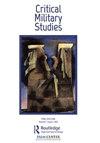致命的保护陷阱:墨西哥毒品战争中国家行为体对基本人权规范的“工具化”
Q1 Arts and Humanities
引用次数: 1
摘要
尽管在国际层面上宣布加强国际人权规范,但基本的人权“生命权”并不总是能够在国家层面上作为反对国家暴力和军事化的障碍。回顾墨西哥禁毒“战争”的开始,Michoacán行动表明,国内政府行为者对生命权的解释和实施含糊不清,往往适得其反。具体来说,保护无辜公民的生命不受毒品犯罪侵害的论点成为墨西哥军方使用致命武力的主要理由。虽然规范遵守和所谓的规范“本地化”过程已经得到了相当多的学术关注,但国家当局唤醒基本人权规范以使其自己的暴力行为合法化(=规范工具化)的可能性迄今尚未成为学术辩论的一部分。本文通过对围绕Michoacán行动开始的关键国家行动者的声明进行深入的话语分析,弥合了这一差距。本文章由计算机程序翻译,如有差异,请以英文原文为准。
The deadly protection trap: the ‘instrumentalisation’ of fundamental human right norms by state actors in the Mexican Drug War
ABSTRACT Despite a proclaimed strengthening of international human rights norms on an international level, the fundamental human ‘right to life’ is not always able to act as a barrier against state violence and militarization on national levels. As illustrated by Operation Michoacán, which in retrospective marked the start of the Mexican ‘war’ on drugs, the right to life has been interpreted and implemented by domestic state actors in ambiguous and often very counterproductive ways. Specifically, the argument to protect innocent citizens’ lives against drug criminality served as a major justification for the use of lethal force by the military in Mexico. While norm compliance and so-called norm ‘localisation’ processes have already received considerable scholarly attention, the possibility that state authorities evoke fundamental human rights norms for legitimizing their own violent practices (= norm instrumentalisation) has so far not formed part of the academic debate. This paper bridges this gap by conducting an in-depth discourse analysis of key state actor’s statements surrounding the start of Operation Michoacán.
求助全文
通过发布文献求助,成功后即可免费获取论文全文。
去求助
来源期刊

Critical Military Studies
Arts and Humanities-History
CiteScore
1.90
自引率
0.00%
发文量
20
期刊介绍:
Critical Military Studies provides a rigorous, innovative platform for interdisciplinary debate on the operation of military power. It encourages the interrogation and destabilization of often taken-for-granted categories related to the military, militarism and militarization. It especially welcomes original thinking on contradictions and tensions central to the ways in which military institutions and military power work, how such tensions are reproduced within different societies and geopolitical arenas, and within and beyond academic discourse. Contributions on experiences of militarization among groups and individuals, and in hitherto underexplored, perhaps even seemingly ‘non-military’ settings are also encouraged. All submitted manuscripts are subject to initial appraisal by the Editor, and, if found suitable for further consideration, to double-blind peer review by independent, anonymous expert referees. The Journal also includes a non-peer reviewed section, Encounters, showcasing multidisciplinary forms of critique such as film and photography, and engaging with policy debates and activism.
 求助内容:
求助内容: 应助结果提醒方式:
应助结果提醒方式:


